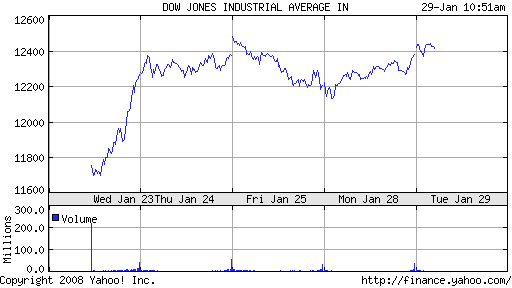Short Sellers, Mark-to-Market, and Mark Cuban’s Nonsense
It’s been a while since I have last posted. The markets have indeed kept me busy. I will try to get back to a normal posting schedule.
I did want to spend a couple of minutes discussing a few topics that I have been thinking about lately.
1) IT’S A BAD IDEA TO BAN SHORT SELLERS
While I admit that as a long-only manager, shorts can be very painful to my holdings. But I still think they play a very critical role in our trading. Very good short sellers will expose bad business models and force them to improve themselves or go out of business. They play an important part in our market ecosystem and to ban them can artificially inflate valuations. Beware when they come back…it could get ugly.
2) MARK-TO-MARKET IS EXACTLY WHAT WE NEED
Recently I have heard politicians discuss the possibility of modifying the mark-to-market accounting rules. Rather, they say we should potentially value these securities as if they were to be “held to maturity.” Therein lies the problem.
Investment banks and prop desks trade the securities. They are not in the business to holding them to maturity. Showing these assets as being “held to maturity” will only further inflate asset values and create an even larger bubble burst.
3) RECENT MARK CUBAN BLOG POST = GARBAGE
I have always been a fan of Cubes. He thinks outside the box and is a superb entrepreneur. I am a huge Maverick fan and I really believe he’s one of the best owners in sports, but check out this senseless post from his blog :
Tax the Hell Out of Wall Street; Give it to Main StreetSep 30th 2008 9:02AM
Tax every single share of stock that is bought and sold 10 cents per transaction. One dime. If you buy a share of stock, your brokerage pays a 10c tax. If you sell a share, your brokerage pays a 10c tax. 1 share, 100 million shares. Its 10 cents per share.
Of course the tax will be paid for by those of us who are buying and selling stocks. So what. Here is the reality. If you are a true investor. Someone who wants to own a share of stock in a company you believe in, then its an amount that is not going to impact your investment decision making process.
If you are a professional trader or an institutional trader that trades continuously, then it may impact your decision making process, but only to the point of reducing your returns by a minimal amount. Its not going to change your inclination to trade. If you make 9.9pct instead of 10pct, you aren’t going to stop trading.
Whats the economic impact ?
If the NYSE, Nasdaq, Amex and OTC are trading 2 Billion shares a day, thats $ 200 Million Dollars PER DAY. If there are 260 trading days a year. Thats about 52 Billion dollars a year.
Thats real money.
Wow…where do I start. To make it easier, let me bullet point my thoughts:
1. So he wants to tax each share. Does does he not realize that if we begin to tax traded shares then we will see volume dry up? Low volume would create serious volatility in the market. Most traders know that light volume days mean more volatility thus lower liquidity for assets and a very inefficient market. Honestly, do we really want more volatility right now? I vote no.
2. I am sorry Cubes but your math is overly-simplistic. By taxing traded shares, then you would see much lower volume. Your tax revenue projections would, at best, be maybe 25% of your guesstimate.
3. There are so many arguments I could make on this post. I think the two above are enough for now…..however how about I propose the following:
TAX THE HELL OUT OF SPORTS OWNERS, GIVE IT TO MAIN STREET1. Put a 15% tax on sporting event tickets and concessions. Not only would Main Street collect money on tax receipts, but it will force the consumer to save for retirement and not waste $200 for a family of 5 to see a football game.
Isn’t part of the credit crisis the fact that the consumer is “tapped out.” This should help cure part of the that problem.
2. Make the owners finance their own sports venues rather than pushing it on “Main Street.” They sell us on the idea of “perceived” economic benefits from having a sports venue. That’s the oldest trick in the book.
(I actually don’t believe we should “tax the hell out of sports owners”…rather, I want to point out how silly it is for a billionaire to tell others how to run their business when they themselves have been subsidized with taxpayer money.)
Go Mavs!
 A successful hostile takeover from the perspective of the bidder is a rare occurrence. Generally speaking, hostile deals are frowned upon by not only some shareholders on both sides of a deal but also by the bankers that sometimes provide the financing. The synergies are also highly scrutinized as history has not been kind to these types of deals. But this case may be different...
A successful hostile takeover from the perspective of the bidder is a rare occurrence. Generally speaking, hostile deals are frowned upon by not only some shareholders on both sides of a deal but also by the bankers that sometimes provide the financing. The synergies are also highly scrutinized as history has not been kind to these types of deals. But this case may be different...



